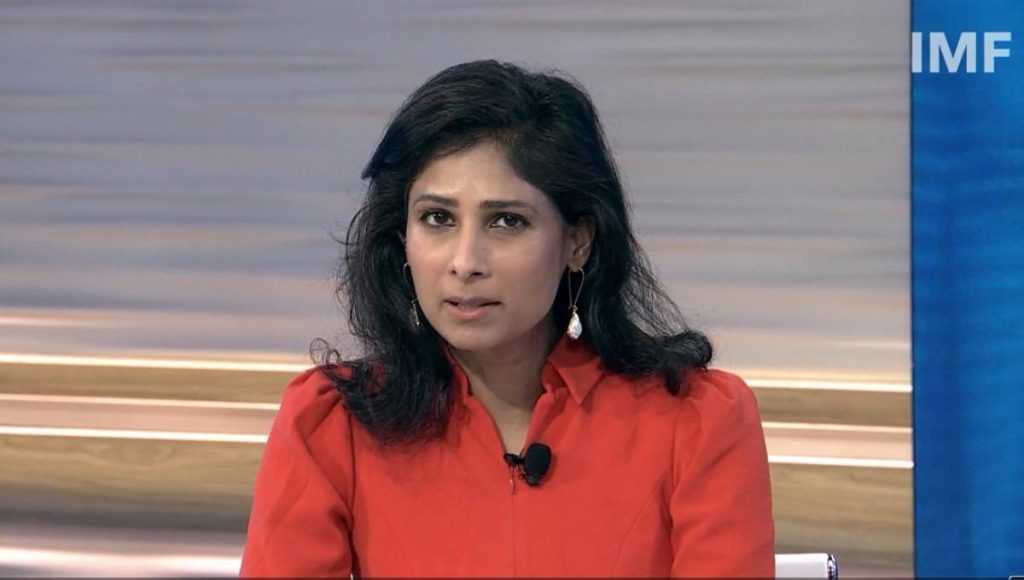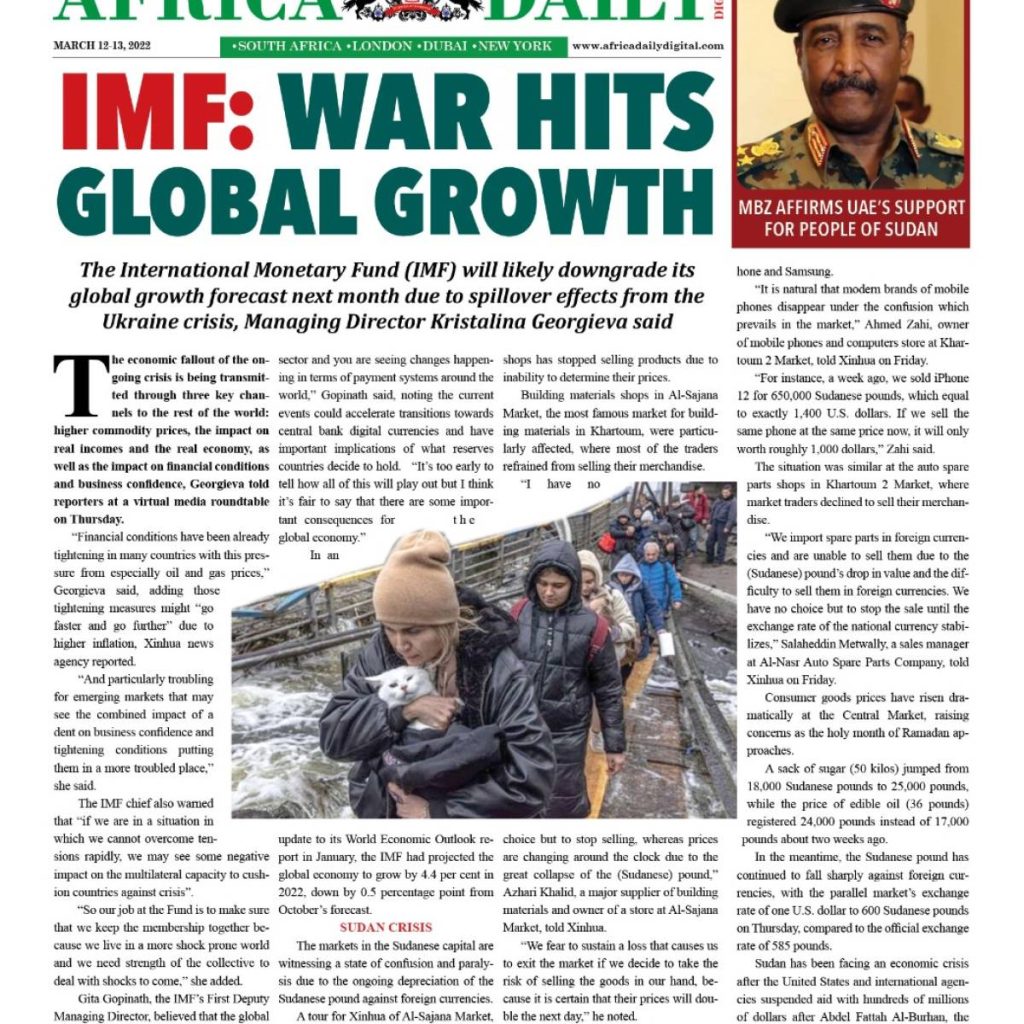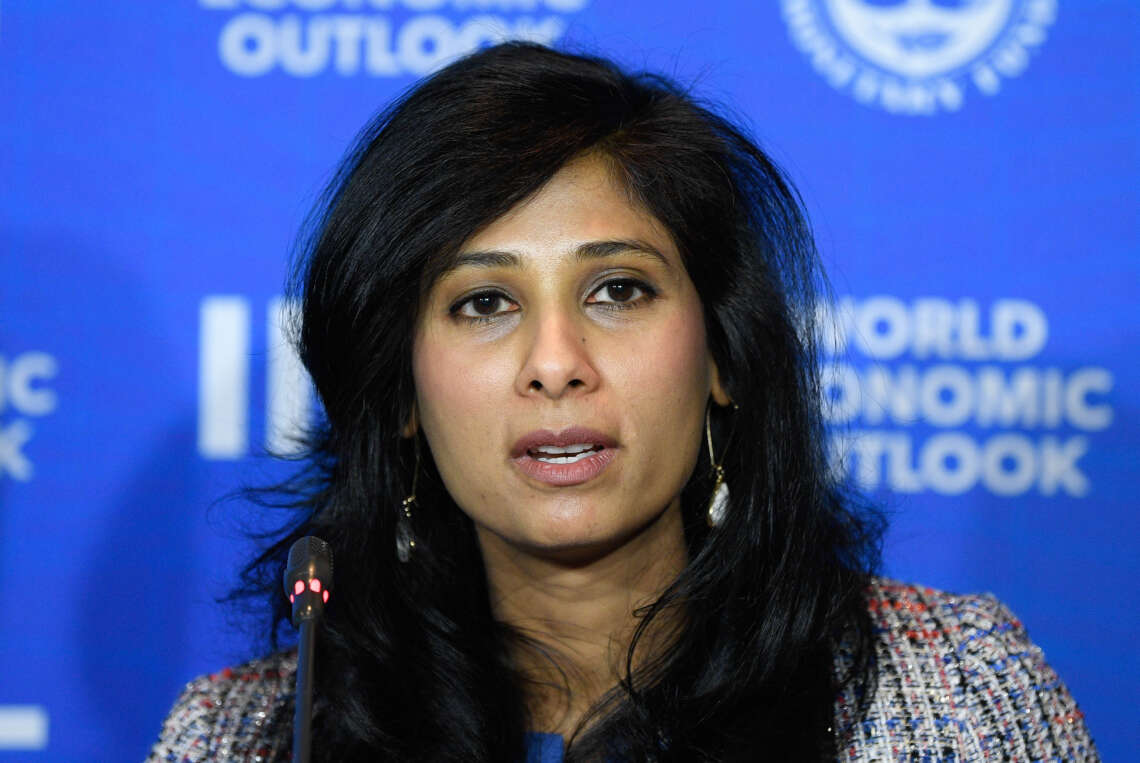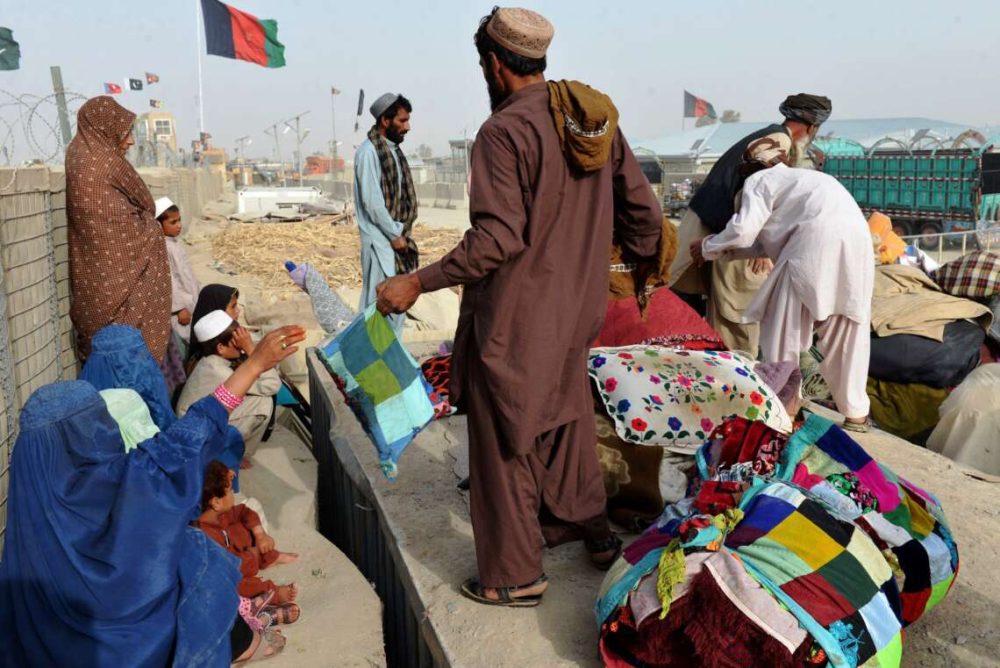The IMF chief also warned that “if we are in a situation in which we cannot overcome tensions rapidly, we may see some negative impact on the multilateral capacity to cushion countries against crisis”…reports Asian Lite News
The International Monetary Fund (IMF) will likely downgrade its global growth forecast next month due to spillover effects from the Ukraine crisis, Managing Director Kristalina Georgieva said.
The economic fallout of the ongoing crisis is being transmitted through three key channels to the rest of the world: higher commodity prices, the impact on real incomes and the real economy, as well as the impact on financial conditions and business confidence, Georgieva told reporters at a virtual media roundtable on Thursday.
“Financial conditions have been already tightening in many countries with this pressure from especially oil and gas prices,” Georgieva said, adding those tightening measures might “go faster and go further” due to higher inflation, Xinhua news agency reported.
“And particularly troubling for emerging markets that may see the combined impact of a dent on business confidence and tightening conditions putting them in a more troubled place,” she said.
The IMF chief also warned that “if we are in a situation in which we cannot overcome tensions rapidly, we may see some negative impact on the multilateral capacity to cushion countries against crisis”.
“So our job at the Fund is to make sure that we keep the membership together because we live in a more shock prone world and we need strength of the collective to deal with shocks to come,” she added.

Gita Gopinath, the IMF’s First Deputy Managing Director, believed that the global system “will change in important ways” in the aftermath of the Ukraine crisis.
“You can see the change in the energy sector and you are seeing changes happening in terms of payment systems around the world,” Gopinath said, noting the current events could accelerate transitions towards central bank digital currencies and have important implications of what reserves countries decide to hold.
“It’s too early to tell how all of this will play out but I think it’s fair to say that there are some important consequences for the global economy.”
In an update to its World Economic Outlook report in January, the IMF had projected the global economy to grow by 4.4 per cent in 2022, down by 0.5 percentage point from October’s forecast.
Sudan Crisis
The markets in the Sudanese capital are witnessing a state of confusion and paralysis due to the ongoing depreciation of the Sudanese pound against foreign currencies.
A tour for Xinhua of Al-Sajana Market, west of Khartoum, Khartoum 2 Market in central Khartoum, and the Central Market, south of Khartoum, revealed that most shops has stopped selling products due to inability to determine their prices.
Building materials shops in Al-Sajana Market, the most famous market for building materials in Khartoum, were particularly affected, where most of the traders refrained from selling their merchandise.
“I have no choice but to stop selling, whereas prices are changing around the clock due to the great collapse of the (Sudanese) pound,” Azhari Khalid, a major supplier of building materials and owner of a store at Al-Sajana Market, told Xinhua.
“We fear to sustain a loss that causes us to exit the market if we decide to take the risk of selling the goods in our hand, because it is certain that their prices will double the next day,” he noted.
Meanwhile, at Khartoum 2 Market, new brands of mobile phones have disappeared, most notably the recent generations of iPhone and Samsung.
“It is natural that modern brands of mobile phones disappear under the confusion which prevails in the market,” Ahmed Zahi, owner of mobile phones and computers store at Khartoum 2 Market, told Xinhua on Friday.

“For instance, a week ago, we sold iPhone 12 for 650,000 Sudanese pounds, which equal to exactly 1,400 U.S. dollars. If we sell the same phone at the same price now, it will only worth roughly 1,000 dollars,” Zahi said.
The situation was similar at the auto spare parts shops in Khartoum 2 Market, where market traders declined to sell their merchandise.
“We import spare parts in foreign currencies and are unable to sell them due to the (Sudanese) pound’s drop in value and the difficulty to sell them in foreign currencies. We have no choice but to stop the sale until the exchange rate of the national currency stabilizes,” Salaheddin Metwally, a sales manager at Al-Nasr Auto Spare Parts Company, told Xinhua on Friday.
Consumer goods prices have risen dramatically at the Central Market, raising concerns as the holy month of Ramadan approaches.
A sack of sugar (50 kilos) jumped from 18,000 Sudanese pounds to 25,000 pounds, while the price of edible oil (36 pounds) registered 24,000 pounds instead of 17,000 pounds about two weeks ago.
In the meantime, the Sudanese pound has continued to fall sharply against foreign currencies, with the parallel market’s exchange rate of one U.S. dollar to 600 Sudanese pounds on Thursday, compared to the official exchange rate of 585 pounds.
Sudan has been facing an economic crisis after the United States and international agencies suspended aid with hundreds of millions of dollars after Abdel Fattah Al-Burhan, the general commander of the Sudanese Armed Forces, declared a state of emergency on Oct. 25, 2021 and dissolved the Sovereign Council.

The United States immediately suspended 700 million U.S. dollars in economic aid to Sudan, while a budget support of 500 million U.S. dollars from the World Bank, which was expected in November 2021, and 150 million U.S. dollars in special drawing rights from the International Monetary Fund, were also halted.
Sudan’s debt relief process under the Heavily Indebted Poor Countries (HIPC) Initiative of the International Monetary Fund has also halted.
Sudan has been undergoing a dire economic crisis since the secession of South Sudan in 2011, due to which Sudan lost 75 percent of its oil revenues.














